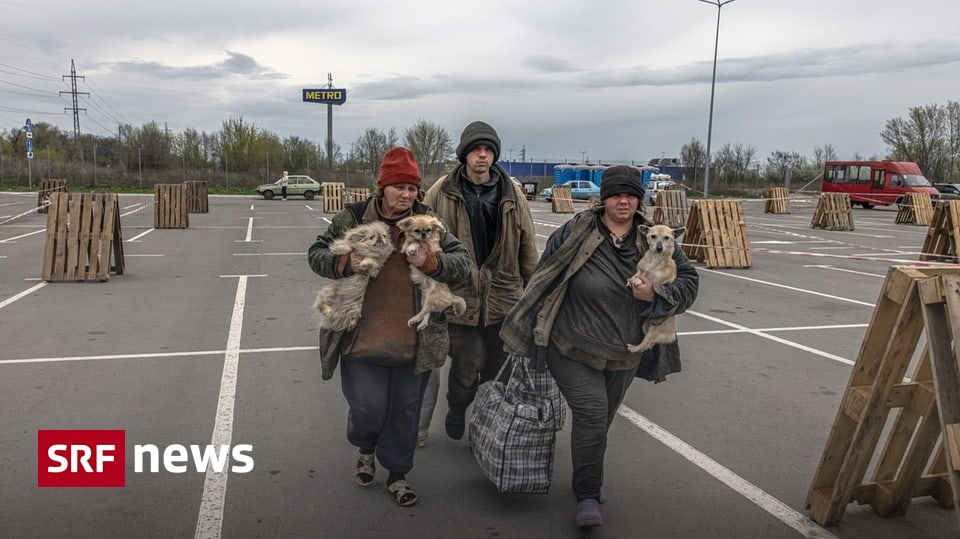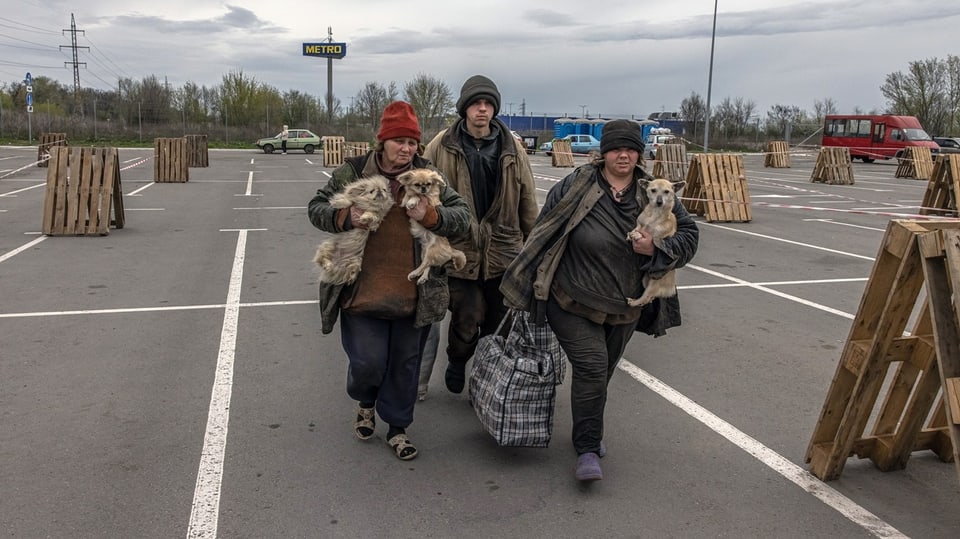
Unity in Poland was greatest when war broke out in Ukraine. Since then, Poland has been considered one of the most important receiving countries for Ukrainian refugees. 1.3 million people from Ukraine currently live in Poland. But more than a year after the outbreak of war, the culture of welcome in Poland begins to crumble. Freelance journalist Jan Obielka explains how solidarity with Ukrainian refugees in Poland is waning.
SRF News: How does the declining solidarity towards Ukrainian refugees show?
Jan Opielka: On the one hand surveys. While 73 percent of Poles are in favor of taking in and helping Ukrainian refugees, a good 20 percent are against it. The proportion of people who want to help at all has also dropped significantly.
It is not hostility, but great suspicion.
But you notice it on the street: when I talk to people, a clearer skepticism is observed than a few months ago. However, what is important is not hostility, but great suspicion.
At the beginning of the war, unity in Poland was overwhelming. Why is she taking it now?
The new situation is now firmly reflected in people’s lives. Let’s take the rental situation as an example: apartment prices have risen significantly, as has the cost of renting and buying real estate. This is also due to the large number of Ukrainian refugees at present. There are practically no collective shelters or refugee homes in Poland, so Ukrainians rent apartments.

Purana:
An initial wave of solidarity against Ukrainian refugees in Poland has leveled off. Effects are slowly noticed.
Keystone/EPA/Roman Filipe
In addition, people also note that the state has less funds for urgent investments such as strengthening social infrastructure, especially in the health care sector. What you see instead is the government investing in weapons for itself and to help Ukraine.
Refugees also make themselves felt in the labor market. In no other country have Ukrainian women found work like in Poland. How does this affect the job market?
About 60 percent of refugees are employed or have established a small enterprise. They also pay for social security. At the same time, the purchasing power and sales of the stores also increase. That is the positive side.
With more people looking for work, Polish workers have a more difficult basis for negotiating wage increases.
On the other hand, with more people looking for work in the labor market, Polish employees have a more difficult basis for negotiating potential wage increases. Inflation is so high in Poland that it is urgently needed. It ranges from 15 to 17 percent.
Again overall: can one observe tangible effects of this diminishing unity?
Many Ukrainians say there is a certain detachment in the Polish population. Politically, the Nationalist-Liberal Alliance is seen as the only recognized opposition party in Parliament. She is very Ukraine-sceptic.
And an important point: a month ago there were large protests by Polish farmers against Ukrainian wheat imports, because they affected the Polish market, which led to a reduction in prices. The Polish government responded to these protests and promised to help there, including a new social programme.
Sylvia Staub conducted the interview.

“Wannabe pop culture fanatic. Zombie advocate. Entrepreneur. Internet evangelist. Alcohol fanatic. Typical travel buff.”





More Stories
Choosing the Right Quality Management Software for Your Industry
If guests bring items: Can shower gel be packed from the hotel?
This diet can prevent death from dementia